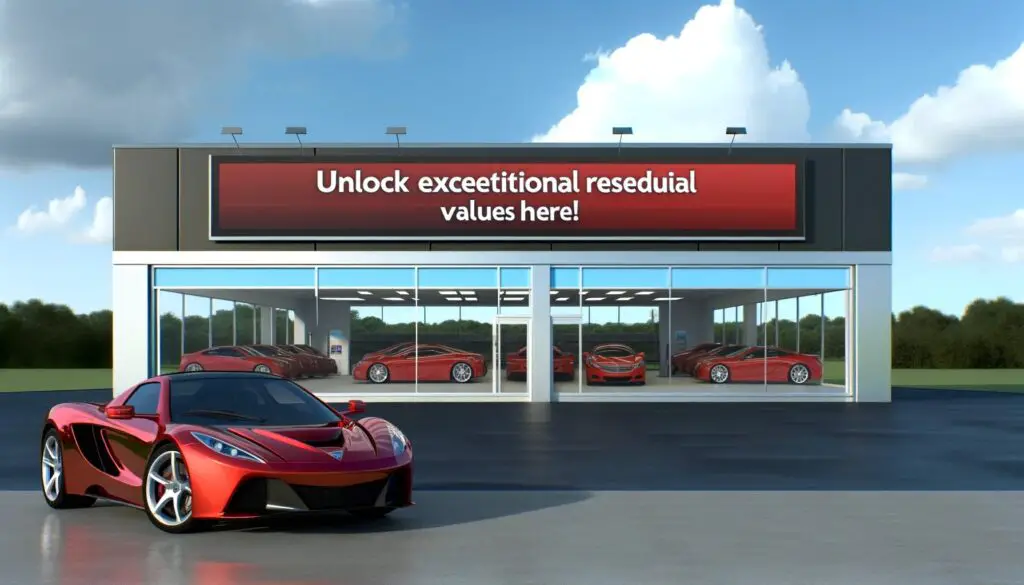In the realm of community support and philanthropy, the concept of providing free cars for pastors has garnered significant attention. This article aims to unravel the intricacies surrounding this enticing prospect while dispelling common misconceptions. We will delve into the various avenues available to pastors seeking vehicles, from non-profit car donation programs to church and community support, grants, and alternative transportation options.
I. Introduction
The Allure of Free Cars for Pastors
Pastors, as pillars of spiritual leadership within their communities, carry a profound responsibility that often extends beyond their congregation’s walls. They dedicate their lives to providing guidance, support, and comfort to those in need. This selfless commitment requires substantial time and effort, often leaving pastors with limited resources for personal matters, such as transportation.
The allure of free cars for pastors is rooted in the potential to alleviate the significant financial burden associated with commuting and travel. Many pastors find themselves in situations where they must navigate their communities’ vast geographical areas to fulfill their ministerial duties. The costs of maintaining a vehicle, including fuel, insurance, and maintenance, can be overwhelming on a limited budget. Consequently, the prospect of obtaining a free car becomes a beacon of hope, enabling pastors to redirect their financial resources toward their ministry’s growth and outreach.
Dispelling Misconceptions
Before pastors embark on the journey of seeking a free car, it is essential to address and dispel common misconceptions that may cloud their understanding of the process. Contrary to popular belief, the path to securing a free car is not as straightforward as merely expressing the need. Pastors should be aware that this endeavor requires meticulous planning, research, and adherence to specific criteria.
Misconception 1: Instant Gratification – Some may erroneously assume that free cars are readily available on demand. In reality, the process is often more complex and may involve waiting periods.
Misconception 2: No Strings Attached – While free cars can indeed be obtained, there are often conditions and eligibility requirements that must be met. These criteria are in place to ensure that the recipients genuinely need the assistance.
Misconception 3: One-Size-Fits-All – Not all pastors or ministries are eligible for free cars through the same channels. The availability and suitability of various programs can vary widely based on individual circumstances.
Misconception 4: Lack of Effort – It is a misconception to assume that acquiring a free car requires minimal effort on the part of the pastor. In reality, pastors must actively engage in the application process and meet specific requirements, which may include documentation and interviews.
Understanding the Options Available
To embark on this journey effectively, pastors must gain a profound understanding of the diverse options available to them. Each avenue comes with its unique benefits and limitations, and pastors should carefully consider which path aligns best with their specific needs and circumstances.
- Non-profit Car Donation Programs: These programs, such as “The Car Ministry Program” and “Ministry Motors,” can provide pastors with donated vehicles or subsidized options. Pastors must comprehend how these programs operate, the eligibility criteria, and the steps involved in the application process.
- Church or Community Support: Many churches and communities rally together to support their pastors in acquiring vehicles. Pastors should explore the various fundraising efforts and approaches that can be employed, as well as the benefits and limitations associated with community support.
- Grants and Assistance Programs: Some grants and assistance programs, often provided by religious organizations and charities, offer financial support to pastors for acquiring vehicles. Pastors should understand the criteria for eligibility, the application process, and the potential benefits of these programs.
- Exploring Alternatives: It’s crucial for pastors to consider alternative transportation options, such as carpooling, public transportation, and utilizing church resources. These alternatives can reduce reliance on free car programs and provide additional flexibility.
II. The Reality of Free Cars
III. Non-profit Car Donation Programs
The Car Ministry Program
“The Car Ministry Program” stands as a beacon of hope for pastors facing transportation challenges. This program operates with the primary goal of providing pastors with the necessary means of transportation to facilitate their ministry work. Here’s an in-depth look at how this program operates:
- Operational Framework: The Car Ministry Program operates by accepting vehicle donations from individuals and organizations committed to supporting pastors. These donated vehicles are then allocated to eligible pastors based on need and specific criteria.
- Eligibility Criteria: Pastors seeking assistance from The Car Ministry Program must meet specific eligibility criteria. These criteria typically include proof of full-time ministry involvement, income limitations, and clear demonstrations of need. Understanding and fulfilling these criteria is vital for prospective applicants.
- Application Process: Prospective applicants are required to engage actively in the application process. This process often includes the submission of detailed documentation, interviews, and potentially a waiting period until a suitable vehicle becomes available.
Ministry Motors
“Ministry Motors,” while similar in its objective of assisting pastors with transportation, distinguishes itself from The Car Ministry Program through unique features and approaches:
- Differences in Operation: Ministry Motors may source vehicles differently. Some programs purchase vehicles at discounted rates and then provide them to pastors. This method can offer more immediate access to vehicles but may come with certain conditions or costs.
- Eligibility and Criteria: The eligibility criteria for Ministry Motors may vary from those of The Car Ministry Program. Pastors considering this option should carefully review the specific criteria and requirements for participation.
- Comparison of Services: When comparing the two programs, pastors should consider the range of services and benefits offered. This assessment can help them determine which program aligns better with their individual needs and circumstances.
Pros and Cons of Non-profit Car Donation Programs
Non-profit car donation programs, including The Car Ministry Program and Ministry Motors, offer invaluable support to pastors in need of transportation. However, it’s essential to acknowledge that these programs come with their own set of pros and cons:
- Pros:
- Accessibility: These programs provide pastors with access to vehicles that they may not otherwise afford.
- Supporting Ministry Work: The vehicles acquired through these programs directly contribute to pastors’ ability to carry out their ministry work effectively.
- Community Assistance: They represent a form of community support, highlighting the generosity of individuals and organizations in assisting pastors.
- Cons:
- Limited Availability: The availability of free or subsidized cars can be limited, leading to potential waiting periods.
- Eligibility Criteria: Meeting the eligibility criteria and navigating the application process can be demanding and competitive.
- Condition of Vehicles: While efforts are made to provide reliable vehicles, the condition of donated cars may vary.
- Costs: In some cases, even subsidized vehicles may come with associated costs or conditions that pastors must consider.
In conclusion, non-profit car donation programs like The Car Ministry Program and Ministry Motors offer pastors a lifeline by providing access to transportation. However, pastors should carefully weigh the pros and cons of such programs, understand their eligibility, and choose the option that best aligns with their specific needs and expectations.
IV. Church or Community Support
V. Grants and Assistance Programs
Less Common Options
In addition to well-known non-profit car donation programs, there are some lesser-known grants and assistance programs that cater to pastors’ specific needs. This section sheds light on these less common opportunities:
- Independent Foundations: Some independent foundations or philanthropic organizations may offer grants or assistance programs tailored to pastors. These opportunities may not be widely publicized but can provide valuable support.
- Denominational Support: Certain denominations or religious affiliations have their own grant programs designed to aid pastors within their faith communities. Pastors should inquire within their specific denomination for information on available support.
- Regional Initiatives: In specific regions or localities, there may be initiatives or community-driven programs aimed at assisting pastors with transportation needs. These initiatives can vary widely in terms of eligibility and offerings.
Religious Organizations and Charities
Some religious organizations and charities are dedicated to supporting pastors by providing grants and assistance for various needs, including transportation. This section outlines the key aspects of these programs:
- Eligibility Criteria: Religious organizations and charities often have unique eligibility criteria that pastors must meet to qualify for grants or assistance. These criteria may include factors like the pastor’s affiliation, ministry involvement, and financial need.
- Application Process: Pastors interested in these programs should familiarize themselves with the application process, which typically involves submitting documentation, explaining their need, and potentially undergoing an evaluation or interview.
- Scope of Assistance: The scope of assistance offered by religious organizations and charities can vary. Some may provide direct financial grants to pastors for purchasing vehicles, while others may offer subsidized loans or other forms of support.
Case Studies of Successful Applicants
To provide insights into the practical aspects of securing grants and assistance for pastors’ vehicles, this section includes real-life case studies of pastors who have successfully navigated these programs:
- John’s Journey: John, a dedicated pastor facing significant transportation challenges, applied for a grant through a religious charity. His successful application not only provided him with a reliable vehicle but also strengthened his ability to serve his congregation effectively.
- Sarah’s Story: Sarah, a part-time pastor, explored less common grant opportunities and found support through an independent foundation. This assistance enabled her to acquire a vehicle that improved her ministry outreach and pastoral duties.
- David’s Experience: David, a pastor affiliated with a specific denomination, benefited from his denomination’s grant program. This program offered him financial assistance that significantly eased the burden of transportation costs, allowing him to focus more on his ministry.
These real-life case studies serve as tangible examples of pastors who successfully secured grants and assistance for their vehicles. They highlight the diverse opportunities available to pastors and underscore the importance of actively exploring these avenues to meet their unique transportation needs.
In conclusion, while non-profit car donation programs are well-known, pastors should not overlook lesser-known grants and assistance options offered by religious organizations, charities, and local initiatives. These programs can provide valuable support in acquiring vehicles to enhance pastors’ ministry work and community service.
VI. Important Eligibility Factors
VII. Vehicle Condition
Managing Expectations
When pastors receive a free car, it is crucial to manage their expectations effectively. Understanding the realities of these vehicles can lead to a more practical and appreciative perspective:
- Variability in Vehicles: Pastors should recognize that the vehicles provided through donation programs can vary widely in terms of make, model, and condition. Not all cars will be the same.
- Not Always Brand New: It’s important to acknowledge that free cars may not always be brand new. Many donation programs offer used or refurbished vehicles to maximize resources.
- Maintenance and Upkeep: While donated vehicles are typically in good working order, pastors should be prepared for regular maintenance and upkeep to ensure the vehicle’s reliability.
Used Cars vs. Brand New Cars
This section explores the difference between receiving used cars and brand new cars through donation programs:
- Used Cars: Used cars are a common offering through donation programs. They may have some mileage and wear and tear but are thoroughly inspected to ensure roadworthiness.
- Brand New Cars: While less common, some donation programs may provide brand new cars. These vehicles are typically reserved for pastors with exceptional needs or circumstances.
Donated and Refurbished Vehicles
Many free cars provided through donation programs are donated and refurbished to ensure reliability. Pastors should appreciate the value of these vehicles in their ministries:
- Donated Vehicles: These vehicles are often generously given by individuals, businesses, or organizations. While they may have some mileage, they are typically well-maintained and cared for.
- Refurbished Vehicles: Some programs take donated cars and invest in refurbishing them to enhance their reliability and safety. This process may involve mechanical repairs, maintenance, and cosmetic improvements.
Prioritizing Reliability over Luxury
While the prospect of a luxurious vehicle may be tempting, pastors should prioritize reliability when receiving a free car:
- Consistent Transportation: The primary purpose of a free car is to provide consistent and reliable transportation for ministry work. A reliable vehicle ensures pastors can fulfill their responsibilities without interruptions.
- Financial Considerations: Luxury vehicles often come with higher maintenance and operating costs. Pastors should focus on vehicles that fit within their budget and do not impose undue financial strain.
- Long-Term Sustainability: Prioritizing reliability over luxury ensures the long-term sustainability of transportation. A reliable vehicle is an asset that can serve the ministry for years to come.
In conclusion, managing expectations when receiving a free car is essential for pastors. Recognizing the differences between used and brand new cars, appreciating the value of donated and refurbished vehicles, and prioritizing reliability over luxury are key factors that enable pastors to make the most of their transportation assistance and continue their dedicated service to their congregations and communities.
VIII. Application Process
Step-by-step Guide
Navigating the application process for free cars as a pastor requires a systematic approach. This step-by-step guide will help pastors submit comprehensive applications:
- Research Programs: Start by researching the various programs available in your region or denomination that offer free cars to pastors. Understand their eligibility criteria and application requirements.
- Gather Documentation: Collect all necessary documentation, including proof of full-time ministry involvement, income statements, letters of recommendation, and any other documents specified by the program.
- Complete the Application: Fill out the application form thoroughly and accurately. Pay close attention to details and ensure all required information is provided.
- Submit References: If the program requires references or letters of recommendation, request these from individuals who can attest to your ministry work and character.
- Follow Deadlines: Be aware of application deadlines and submit your application well in advance to avoid last-minute rushes.
- Prepare for Interviews: If interviews are part of the application process, prepare by practicing common interview questions and articulating your ministry’s impact and need for transportation.
- Stay Informed: Stay informed about the status of your application. Some programs may provide updates or request additional information.
- Express Gratitude: Regardless of the outcome, express gratitude for the opportunity to apply and the assistance provided by the program.
Document Submission
Accurate document submission is crucial for a successful application. Pastors should be aware of the required paperwork and deadlines:
- Document Checklist: Create a checklist of all required documents and ensure that each is complete and accurate. This may include proof of ministry involvement, financial statements, identification, and more.
- Organize Documents: Keep all documents well-organized in a folder or binder to prevent misplacement or delays.
- Double-Check Requirements: Before submitting, double-check the program’s specific requirements. Some programs may request additional documents or information beyond the standard application form.
Interview or Selection Process
Certain programs may involve interviews or selection processes as part of the application:
- Interview Preparation: If an interview is required, prepare by reviewing your application, highlighting your ministry’s impact, and practicing responses to potential interview questions.
- Professional Attire: Dress professionally for interviews to make a positive impression.
- Be Yourself: During interviews, be authentic and sincere in conveying your dedication to ministry and the need for transportation assistance.
Common Challenges and How to Overcome Them
This section addresses common challenges pastors may encounter during the application process and provides strategies for overcoming them:
- Limited Resources: If resources are scarce, consider seeking assistance from church members or the community to gather necessary documentation and complete the application.
- Competitive Process: Acknowledge that some programs may have a competitive selection process. Emphasize your unique ministry contributions and specific needs in your application and interviews.
- Incomplete Documentation: Ensure all required documents are complete and accurate to avoid delays or rejection.
- Uncertainty: If you are uncertain about the process, reach out to program coordinators or mentors who can provide guidance and support.
In conclusion, a well-structured and organized approach to the application process is crucial for pastors seeking free cars. Following a step-by-step guide, submitting accurate documentation, preparing for interviews, and overcoming common challenges can enhance the likelihood of a successful application, ultimately allowing pastors to continue their dedicated ministry work with reliable transportation.
IX. Exploring Alternatives
Carpooling
Carpooling is a practical and eco-friendly alternative to owning a personal vehicle. Pastors can explore this option to reduce their reliance on free car programs:
- Congregational Support: Pastors can reach out to their congregation members and explore the possibility of carpooling with churchgoers who live nearby. This not only reduces transportation costs but also strengthens community bonds.
- Scheduling Flexibility: Coordinating schedules with fellow carpoolers can provide pastors with convenient transportation options, even for non-ministry-related activities.
- Environmental Benefits: Carpooling aligns with environmental sustainability by reducing the number of vehicles on the road, lowering carbon emissions, and contributing to a greener community.
Public Transportation
Public transportation is an accessible means of getting around for pastors who live in areas with reliable transit options. Pastors should consider its advantages and drawbacks in their context:
- Cost-Effective: Public transportation is often more cost-effective than owning and maintaining a personal vehicle. It can be a financially sustainable option.
- Reduced Stress: Using public transportation can reduce the stress associated with traffic and parking, allowing pastors to focus on ministry tasks during their commute.
- Scheduling Considerations: Pastors should align their schedules with public transportation timetables to ensure punctuality for ministry commitments.
- Limitations: Public transportation may have limitations in rural areas or regions with limited coverage. Pastors should assess the availability and convenience of these services.
Utilizing Church Resources
Churches often have resources that can assist pastors with transportation:
- Church Vehicles: Some churches maintain a fleet of vehicles that pastors can use for ministry-related travel. Pastors should inquire about the availability and policies regarding the use of church vehicles.
- Community Support: Church members may be willing to volunteer their vehicles or offer rides to pastors for ministry-related activities. Pastors can foster relationships with congregants who are willing to assist.
Reducing Reliance on Free Car Programs
Diversifying transportation options can reduce reliance on free car programs, providing pastors with more flexibility:
- Hybrid Approaches: Pastors can consider combining various transportation methods. For instance, they may use public transportation for daily commuting and rely on free cars or church vehicles for special ministry events.
- Long-Term Planning: Pastors can set long-term transportation goals, such as saving for a personal vehicle or exploring leasing options. This approach allows for gradual independence from free car programs.
- Community Engagement: Engaging with the community and exploring partnerships with local businesses or organizations can open up new avenues for transportation support.
In conclusion, pastors have several alternatives to consider when it comes to transportation, including carpooling, public transportation, utilizing church resources, and reducing reliance on free car programs. By exploring these options strategically, pastors can ensure reliable transportation for their ministry work while minimizing financial burdens.
X. Frequently Asked Questions (FAQs)
What are the chances of getting a brand new car for free?
The chances of receiving a brand new car for free may vary depending on the specific program and its eligibility criteria. Generally, most free car programs prioritize providing reliable transportation to pastors, and brand new cars are relatively rare. However, some programs may offer brand new cars to pastors with exceptional needs or circumstances. It’s essential to research and inquire with the specific programs you are interested in to understand their offerings and eligibility criteria accurately.
Can part-time pastors apply for these programs?
Yes, part-time pastors can typically apply for free car programs. While some programs may prioritize full-time pastors, many recognize the valuable contributions of part-time pastors and extend their assistance to them as well. Eligibility criteria may vary between programs, so part-time pastors should review the requirements of each program to determine their eligibility and submit applications accordingly.
How long is the typical waiting period for donated cars?
The typical waiting period for donated cars can vary significantly depending on several factors, including the demand for vehicles in the program, the availability of donated cars, and the eligibility criteria. In some cases, pastors may receive a vehicle relatively quickly, while others may experience a longer waiting period. It’s advisable to inquire with the specific program about their waiting period and seek updates on the status of your application to gain a more accurate estimate.
Are there any tax implications for receiving a free car?
Yes, there can be tax implications when receiving a free car, as it may be considered a taxable gift or income. Pastors should consult with a tax professional or accountant to understand the specific tax implications in their jurisdiction and the applicable rules for reporting the receipt of a free vehicle. Keeping accurate records and documentation related to the donation is essential for tax compliance.
Can international pastors benefit from these programs?
The eligibility of international pastors to benefit from free car programs can vary depending on the specific program’s policies and location. Some programs may limit assistance to pastors within a particular country or region, while others may have more inclusive eligibility criteria. International pastors seeking assistance should research programs available in their area and inquire about eligibility requirements, as well as explore any local or regional initiatives that may provide support.
In conclusion, pastors seeking free cars may have questions about their eligibility, the likelihood of receiving brand new cars, waiting periods, tax implications, and international eligibility. Addressing these FAQs can provide clarity and guidance to pastors as they navigate the process of seeking transportation assistance for their ministry work.
XI. Resources for Further Assistance
1. The Car Ministry Program Website
- Website: The Car Ministry Program
- Description: The Car Ministry Program’s official website offers comprehensive information about their car donation program for pastors. Pastors can visit the website to learn about eligibility criteria, application procedures, and available resources.
2. Ministry Motors Official Website
- Website: Ministry Motors
- Description: Ministry Motors is another organization dedicated to providing transportation assistance to pastors. Their official website offers valuable insights into their programs, services, and how pastors can apply for support.
3. External Resources like “Need Help Paying Bills: Where to Get Free Cars”
- Resource: Need Help Paying Bills: Where to Get Free Cars
- Description: “Need Help Paying Bills” is an external resource that compiles information about various assistance programs, including those offering free cars. Pastors can access this resource to explore additional avenues for obtaining transportation assistance.
These resources provide pastors with valuable information and assistance in their quest to secure reliable transportation for their ministry work. Whether it’s through established programs like The Car Ministry Program and Ministry Motors or external resources that provide insights into available opportunities, pastors can access the support they need to fulfill their vital roles in their communities.
XII. Success Stories
Real-life Stories of Pastors Who Received Free Cars
John’s Journey: A New Sense of Mobility
John, a dedicated pastor, had been facing significant transportation challenges. His aging vehicle was unreliable, and he often struggled to reach his congregation members and attend community events. Recognizing the importance of reliable transportation for his ministry, John decided to apply for a free car through a local car donation program.
John’s application was successful, and he received a well-maintained vehicle that not only improved his daily commute but also allowed him to expand his outreach efforts. With his new car, John could visit congregation members in need, attend meetings and events more consistently, and provide vital spiritual support to his community.
The impact on John’s ministry was profound. He saw an increase in attendance at church services, and his ability to connect with his congregation members on a personal level became even more meaningful. John’s story serves as a testament to how access to a reliable vehicle can transform a pastor’s ability to serve their community effectively.
Sarah’s Story: Overcoming Transportation Barriers
Sarah, a part-time pastor, faced unique challenges due to her limited income and transportation options. As a part-time minister, she was passionate about her ministry work but struggled to afford a reliable vehicle on her own. Sarah decided to explore alternative avenues for acquiring a car, beyond traditional purchase methods.
She discovered an independent foundation that offered grants to pastors in her situation. Sarah applied and was approved for a grant that enabled her to purchase a used but dependable vehicle. This newfound mobility allowed Sarah to broaden her outreach and serve her congregation more effectively.
Sarah’s story showcases the importance of seeking out lesser-known grants and assistance programs tailored to pastors’ needs. Her determination and resourcefulness not only improved her ministry but also inspired others facing similar challenges to explore alternative solutions.
David’s Experience: Strengthening Ministry Commitment
David, a pastor affiliated with a specific denomination, found himself struggling with the financial burden of transportation costs. He was committed to his ministry but felt that the demands of his daily commute were taking a toll on his ability to serve his congregation effectively.
Through his denomination’s grant program, David received financial assistance that significantly eased the financial strain associated with transportation. With this support, he was able to purchase a reliable vehicle that aligned with his ministry needs.
The impact of the grant on David’s ministry was evident. He could now allocate more time and energy to pastoral duties, focusing on spiritual guidance, counseling, and community engagement. The assistance strengthened his commitment to ministry and allowed him to thrive in his role as a spiritual leader.
In conclusion, these real-life success stories of pastors who received free cars demonstrate the transformative impact of reliable transportation on their ministries and lives. Access to transportation not only enhances their ability to serve their congregations but also strengthens their commitment to their calling as pastors, ultimately benefiting their communities as well.
XIII. Conclusion
In conclusion, let’s summarize the key takeaways from this comprehensive guide for pastors seeking free cars, encourage individuals in need to explore available options, and reiterate the importance of realistic expectations.
Summarizing Key Takeaways:
- Diverse Options Exist: Pastors have various options to secure free cars, ranging from non-profit donation programs to grants and community support.
- Eligibility Criteria: Understanding and meeting eligibility criteria, such as proof of full-time ministry involvement and specific need demonstrations, is essential.
- Vehicle Condition: Pastors should prioritize reliability over luxury when receiving free cars and understand that refurbished or used vehicles are common offerings.
- Application Process: Navigating the application process requires careful documentation, preparation for interviews (if applicable), and awareness of common challenges.
- Exploring Alternatives: Pastors can consider alternatives like carpooling, public transportation, and utilizing church resources to reduce reliance on free car programs.
- Frequently Asked Questions: Common queries regarding brand new cars, part-time pastors, waiting periods, tax implications, and international eligibility should be addressed for clarity.
- Resources for Assistance: Pastors can benefit from official program websites and external resources that provide information and support.
- Success Stories: Real-life stories highlight the impact of free cars on pastors’ ministries and lives, serving as inspiration for others facing similar challenges.
Encouraging Individuals in Need to Explore Available Options:
If you are a pastor in need of transportation assistance, we encourage you to explore the avenues discussed in this guide. Whether through established programs, alternative transportation methods, or community support, there are resources available to help you continue your vital ministry work.
Reiterating the Importance of Realistic Expectations:
While pursuing free cars, it’s crucial to maintain realistic expectations. Understand that the process may involve challenges, waiting periods, and varying vehicle conditions. Nevertheless, with determination and proper preparation, you can enhance your chances of securing reliable transportation to further your ministry’s impact.
In conclusion, the journey towards obtaining a free car for pastors is filled with opportunities and challenges. By understanding the nuances of this process and exploring the available avenues, pastors can increase their chances of receiving the support they need for their ministries and communities.





